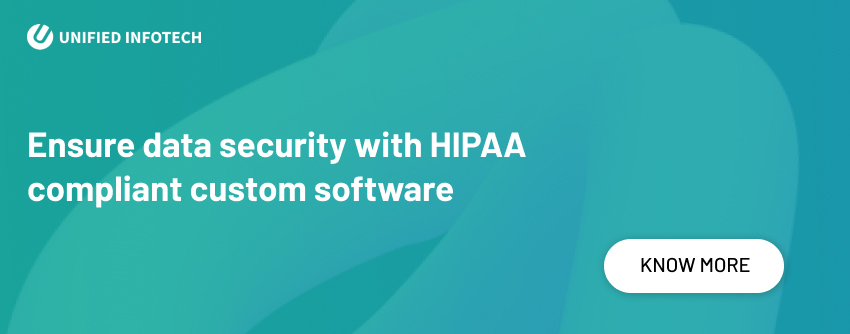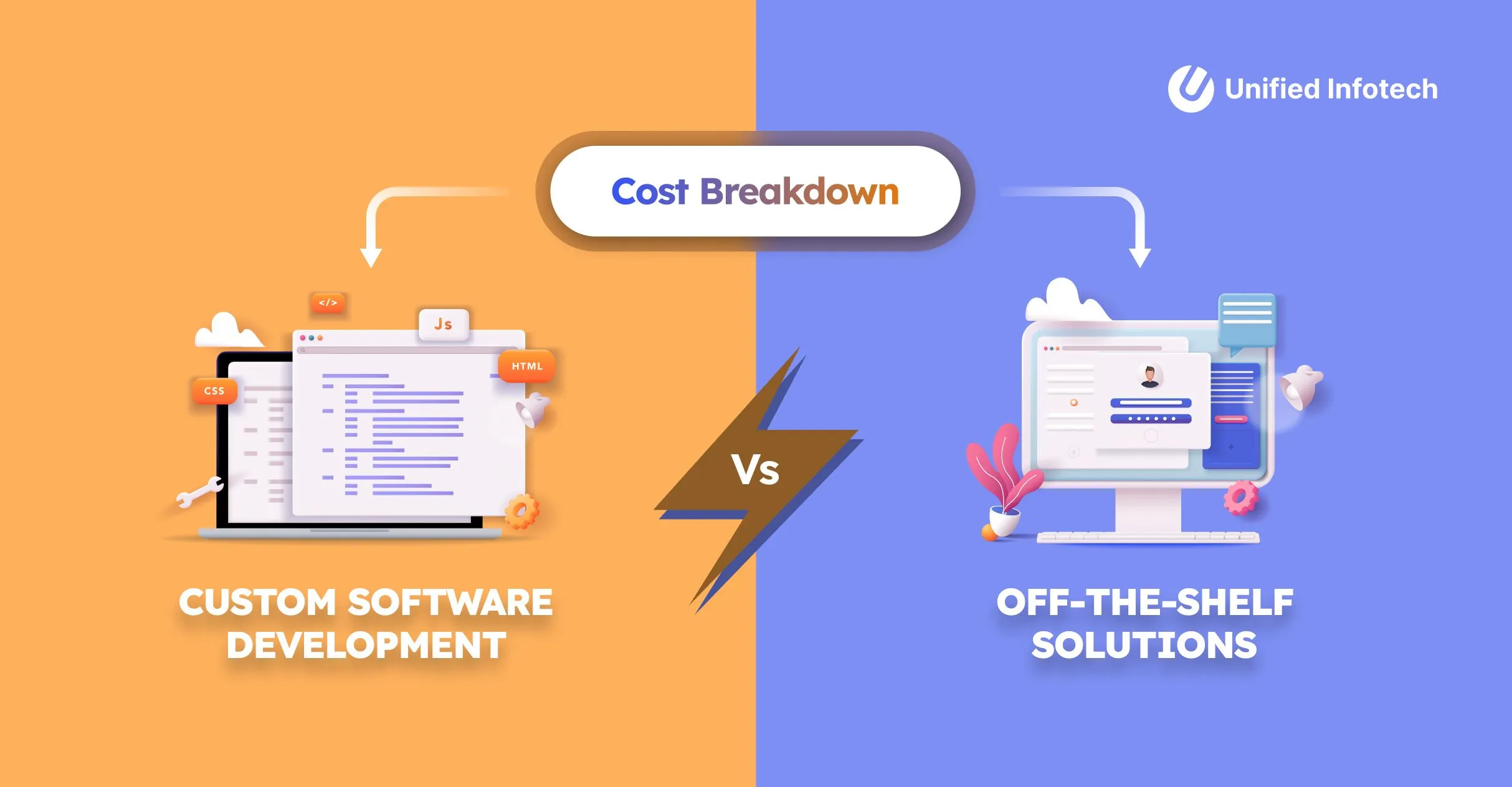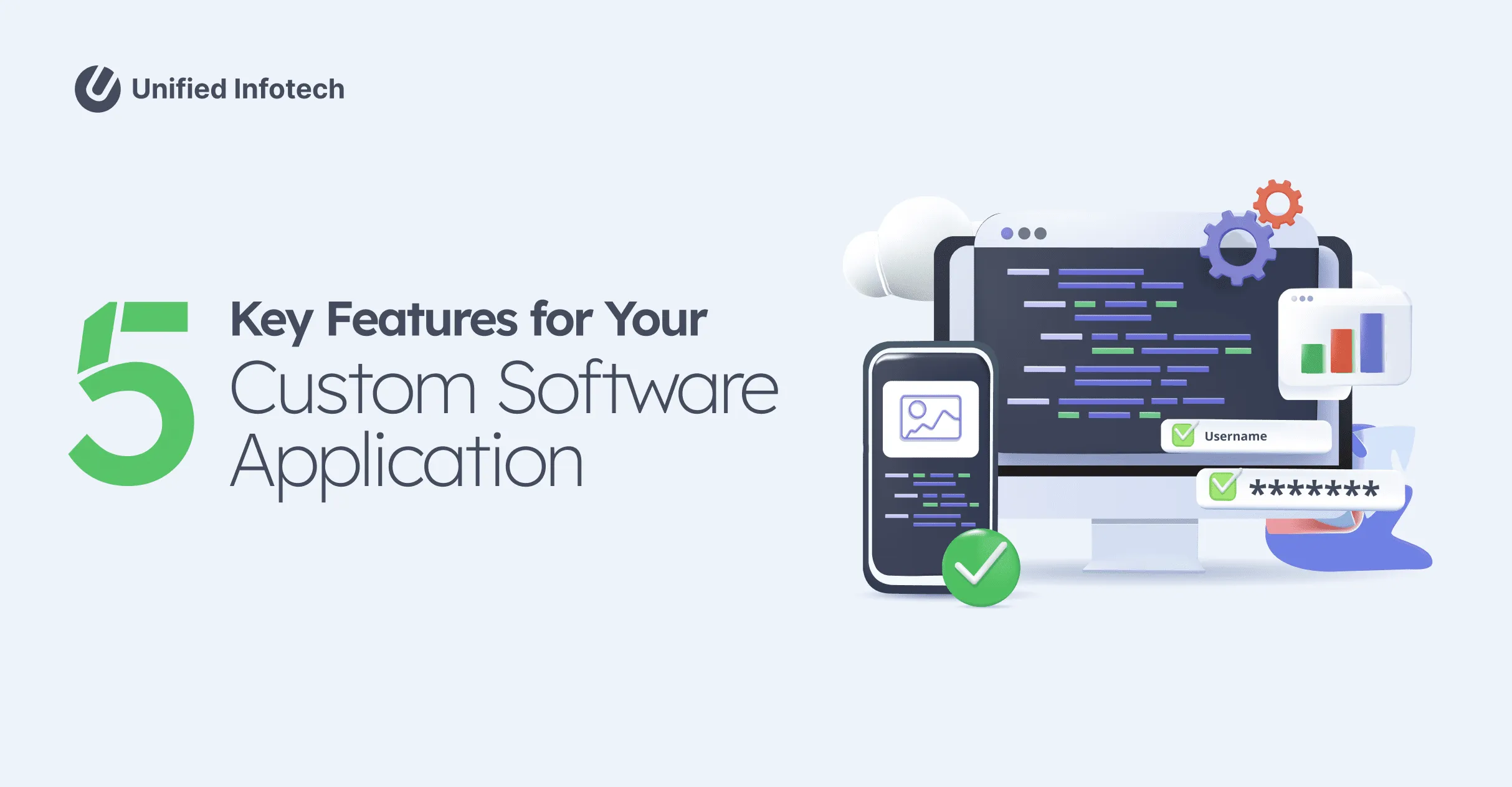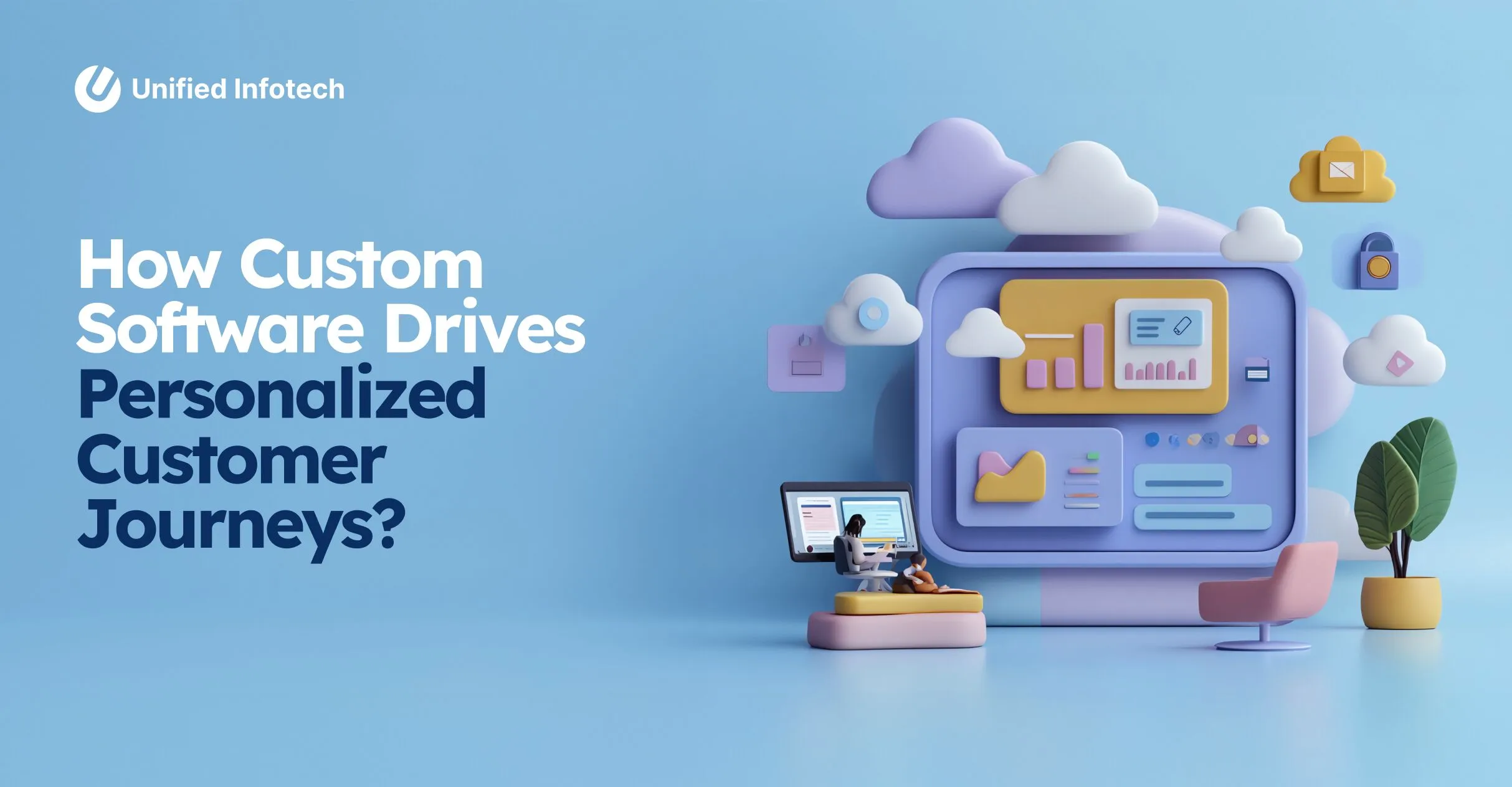
Site Search
Optimize Revenue Cycle Management In Healthcare With Custom Software Solutions
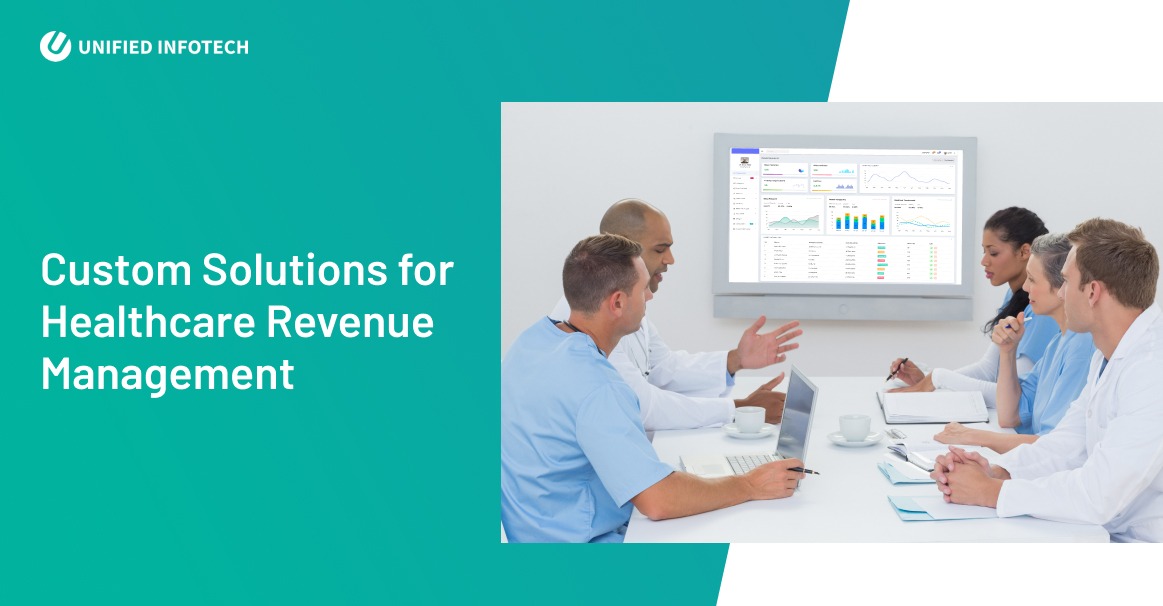
Table of contents

Let's talk
Reach out, we'd love to hear from you!
Healthcare is a highly regularized sector that demands precision and accuracy. The presence of inefficiencies in the revenue cycle management in healthcare can pose a serious challenge. Generally, these vulnerabilities give rise to friction between the payers, providers, and health insurance companies. Leveraging custom software solutions is the only way to mitigate this and ensure a seamless flow, especially in revenue cycle management in healthcare.
Best Practices to Enhance Revenue Cycle Management in Healthcare
Before proceeding further, let us gain an insight into the importance of revenue cycle management in healthcare. By definition, it involves all those processes where a financial transaction exists. This transaction may be between the provider and the payer, the insurance company, its numerous suppliers, etc. While most healthcare companies have revenue cycle management (RCM) systems in place, they are not foolproof. To enhance the effectiveness of the implemented RCM, a healthcare provider needs to follow certain best practices like:
Prioritizing Patients and Their Preferences
A transparent payer/provider relationship always results in a long-term relationship. Update them about the likely expenses they will incur at the beginning of their treatment process. This will make the patients feel more in control over their care strategy. Additionally, reducing the surprise element associated with payments will help healthcare companies realize their payments quickly and efficiently.
Collecting Up-Front Payments
Realizing the applicable payments after the patient has received the required care can lead to a disconnect. Collect payments when scheduling appointments, irrespective of whether the patient or insurance provider makes the payment.
Automating Claim Authorization
This is a popular point of disconnect between the payer and the provider. It results in payment delays and an increase in aging debts. Automating will help simplify this process and make it time efficient.
Improving Claim Filing Timelines
Leverage the role of custom software in healthcare revenue cycle management to reduce claim filing timelines and improve TAT for claim realization.
Managing Denials
An insurance provider does not approve all claims. Some reasons for rejection include missing information, late filing, eligibility issues, incorrect coding, and duplicate claims. Most of these issues are avoidable; this process needs to be streamlined if they get repeated.
Monitoring Account Receivables
Immediate realization of payments will prevent account receivables from piling and aging. Regular and frequent monitoring of the same can help prevent this.
Complying with Statutory Requirements
Ensuring compliance, especially with HIPAA, is mandatory for healthcare providers. They should comply with them on priority.
Using Healthcare Application Development to Address Pain Points
All healthcare providers have two options for implementing the above-mentioned best practices. They can manually oversee the processes or invest in technology. Manual implementations can lead to inaccuracies and delays. But automating the processes will enhance the efficiency of revenue cycle management in healthcare by eliminating its associated pain points:
- Inaccuracy of claim submission and reimbursement
- Miscommunication between involved parties
- Complicacies of patient information documentation
- Administrative process overlooks
- Fraud, corruption, and wastage
- Added operational costs
- Ever-evolving healthcare regulations
- Untimely Payment collection
What is the Role of Software in Healthcare Billing
Investing in a custom software development company to build an RCM system has benefits beyond addressing pain points. For example, custom RCM software can be leveraged to handle vast volumes of information, manage claims, automate alerts, etc.
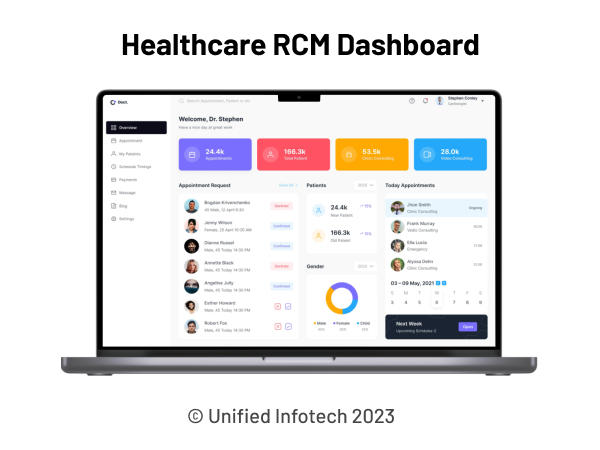
Today, customizing software solutions for revenue cycle management in healthcare is a mandatory requirement because:
- Healthcare billing involves many ethical and legal requirements that keep changing frequently. Healthcare providers must stay abreast of these changes to maintain a healthy and hassle-free business. Manually, it is challenging to keep track of the changes, but an automated system makes it easy.
- Healthcare service providers frequently experience seasonal variations in their business volumes. Automating the RCM will enable these providers to address increased business volumes without incurring additional expenses.
- Healthcare providers must also stay aligned with claim filing and other associated procedure changes implemented by insurance providers. Additionally, they must keep track of and incorporate the latest advances in treatment procedures. All this calls for precision in time management. Implementing automated solutions for revenue cycle management in healthcare can help them achieve this effortlessly.
- Investing in technology generates a higher ROI than many other operational investments associated with the healthcare sector. Automating processes makes it both cost and time efficient. Streamlining and fine-tuning revenue processes enhances revenue management and improves ROI on technology investments.
- The healthcare sector generates a lot of data. This can be used to gain deep insights that facilitate accurate decision-making and improve their efficacy. Such decision-making further enhances financial and commercial health and enables healthcare providers to thrive and sustain in a competitive landscape.
However, the choice of a healthcare software development company is crucial. It plays a critical role in the success of the RCM solution. The same should be selected after careful research about the quality of the services offered. Partnering with a good custom software developer will help healthcare providers realize their revenue management goals quickly.
How to Select a Healthcare Custom Software Solutions Provider
When opting for custom healthcare revenue software, healthcare providers have two alternatives. They can opt for off-the-shelf RCM systems. Alternatively, based on their needs, they can get a customized software solution designed by a custom software development company in usa.
While an off-the-shelf solution is inexpensive, it is rarely flexible enough to accommodate custom healthcare revenue needs. Solutions developed by custom software development companies in the US offer healthcare providers the ability to personalize their RCM software. They can add or delete modules based on their system requirements. This enhances the utility of the software and offsets the additional expenses healthcare providers might incur.
Healthcare providers can maximize the ROI from the developed RCM software solutions by choosing an appropriate custom software developer. Some points that need to be priorities for the same include:
-
Type of Custom Software Solutions they Offer
RCM combines several different but interrelated processes. Developing a comprehensive RCM solution is time-consuming. Debugging it to improve its usability is also a challenging prospect. Hence, select a custom software provider specializing in bespoke solutions for the different RCM modules. This flexibility will help make the process result-oriented and efficient.
-
Scalable Technology
Frequent technological advances are a common occurrence. So look for a partner backed by updated technical expertise and experience. Such custom solution providers keep up-to-date with the latest technological advances and implement them to make scalable custom solutions.
-
Trust and Transparency
Revenue management software is a critical component of the healthcare industry. Choose a custom software development company that ensures process transparency through clear communications. Such companies are well-equipped to build and justify their healthcare client’s trust.
-
Personalized Training and Support
Both are crucial in maximizing the utility of the developed custom healthcare revenue software. Thus, a custom software development company in the US that prioritizes product training and support will be the right choice for healthcare providers.
Must-Have Features of revenue cycle management in healthcare System
The features to be incorporated in a custom solution for revenue cycle management in healthcare depend on individual healthcare provider requirements. Some popular in-demand features of healthcare management systems are given below.

-
Pre-Registration
Generally, a revenue cycle starts with patient registration. But integrating the option of pre-registration helps healthcare providers gain and retain information about future patients. When such people come to avail of the healthcare facilities, they can do so without going through the registration process. This facility is extremely beneficial in instances of emergency admissions and emergency healthcare administrations.
Keeping records of future patients also helps healthcare providers to enhance patient engagement, thereby increasing patient loyalty.
-
Patient Scheduling
Patient scheduling, either for doctor consultations or for other procedures, is complicated and lengthy. Implementing custom software solutions makes patient scheduling easy and flawless. Patients can book appointments and procedural tests online instead of going to the healthcare provider. They can also make the required payments online. Since collecting upfront payment is the preferred way of payment collection for healthcare providers, both the payer and the provider benefit from this. Patients will also receive automated alerts regarding confirmations, payments, and scheduling changes, if any.
-
Automated Billing
People come to a healthcare facility to avail themselves of innumerable healthcare processes. It is not possible for their employees to remember all the costs associated with these treatment procedures. Integrate automated billing in the design and implementation of solutions related to revenue cycle management in healthcare to overcome this challenge. Add different payment platforms, gateways, and options to enhance payment flexibility.
-
Claim Management
Enhance the accuracy of the claims filed by automating the process. Revenue Cycle Management custom software solutions can make this process transparent by informing patients about their insurance eligibility criteria beforehand. Thus, patients will be better prepared and in control of their treatment process.
Each insurance provider has different criteria for filing and approving/rejecting claims. An automated RCM can be developed to file customized claims based on individual insurance provider criteria. This will reduce claim rejection and the time taken to file the claims.
-
Charge Capture Duties Simplified
Charge capture is a complex process performed by healthcare providers and practitioners. It involves recording and documenting all procedures or services rendered to the patients. It starts after patients complete their treatment or test procedures. After compiling the same, it is submitted to the patient/insurance provider for payment realization. But Improper charge capture may lead to unwanted consequences. For example, under-coding charges can result in revenue leakages. On the other hand, over-coding charges are non-compliant and may lead to costly audits.
Software developer companies enhance the functionality of their custom RCM software by automating charge capture. For healthcare providers having this functionality means they are protected from revenue leakages and audits.
-
Back-End Processes Optimized
By automating backend processes and streamlining task management workflows, custom-developed RCM solutions help reduce manual workloads. This increases the efficiency of those processes that are repetitive and time-consuming. Consequently, healthcare providers can maximize staff utilization and enhance their productivity by automating the entire backend process.
-
Security and Encryption
The healthcare industry involves confidential data collection that, if breached, can result in financial and reputational loss. Automating the RCM increases the importance of the healthcare management system by securing data collection from different touchpoints. Healthcare providers can enhance data security by customizing their RCM software with secure data storage mechanisms.
Most healthcare providers must also prioritize HIPAA compliance and safeguard patient information by maintaining specific privacy standards. An RCM software can be customized to implement HIPAA guidelines and reduce the healthcare organization’s legal and statutory risks. Healthcare providers can concentrate on providing high-quality medical care while ensuring patient confidentiality.
-
Quick Turnaround
Automating processes makes them quick and accurate. Hence, the service outcome efficiency improves, and healthcare providers can provide better services to their customers. Rapid processes result in better patient management and greater patient satisfaction, enhancing revenue outcomes.
-
Data-Driven Decision-Making
Healthcare providers can also customize their custom software solutions with capabilities for data analytics. The deep insights gained from them can be used to improve processes associated with revenue management. They can also plug present lacunae into the workflows, enhancing efficiency and outcomes.
How can Unified Infotech’s Custom Software Solutions Empower revenue cycle management in healthcare
By opting for custom software for revenue cycle management in healthcare from Unified Infotech, healthcare providers can harness the benefits of modern technology to ensure:
- Better patient migration from legacy to automated systems
- Improved processing of patient data
- Automation of insurance data such that healthcare providers can reduce claim rejection and claim resubmission
- Increased accuracy and transparency of medical billing processes that reduce the scope of faulty charge capture
- Interactive and innovative dashboards that offer a quick resolution to patient queries and requirements for better patient relationship management
- Ensuring compliance with statutory requirements and legislation
At Unified, we believe in building viable healthcare solutions. We concentrate on creating custom solutions that cater to different modules of the RCM. Implementing software solutions for the various modules one at a time helps to simplify business processes. It facilitates better data collection and sharing between the different modules.
By building customized solutions for different modules, Unified improves the quality of healthcare app development. Debugging becomes easy, and the time-to-market also improves.
We also provide IT consultation before we start building a custom healthcare solution. Before building a framework with the required service features, our experts hold multiple sessions to understand the healthcare provider’s needs. Conducting extensive market and competitor research, they help guide the client regarding all additional modifications that need implementation.
We also provide our clients with a Knowledge Transfer demo before deploying the final software. By doing this, we maximize the utilization of the complete software solutions we build for them.
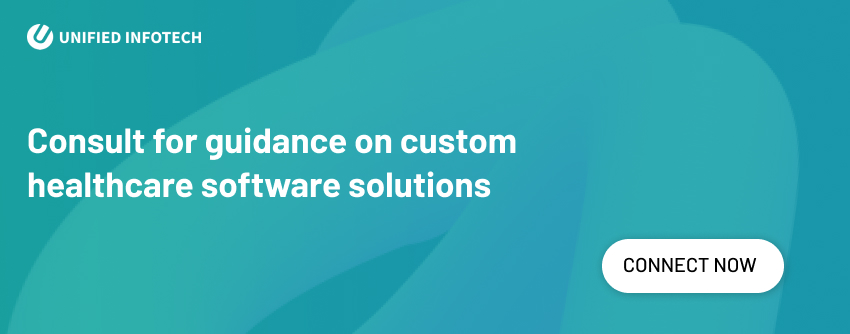
The demand for custom software solutions in the healthcare sector cannot be denied. Numerous software development companies are making custom solutions to capitalize on this trend. But healthcare providers must be extra cautious when selecting a software development company. Some services they should look for and research include the type of customer support offered post the deployment of the software solution. The healthcare industry has to function 24 x 7 on priority. Hence, they should look for a custom software company that can provide intensive customer support.
They should also research the tools and processes they need to implement in the software and align them to their needs. With Unified Infotech developed custom solutions for revenue cycle management in healthcare, you can be sure of accessible help as and when required. Also, all our solutions are client-specific and will help healthcare providers meet their organizational and societal goals.
